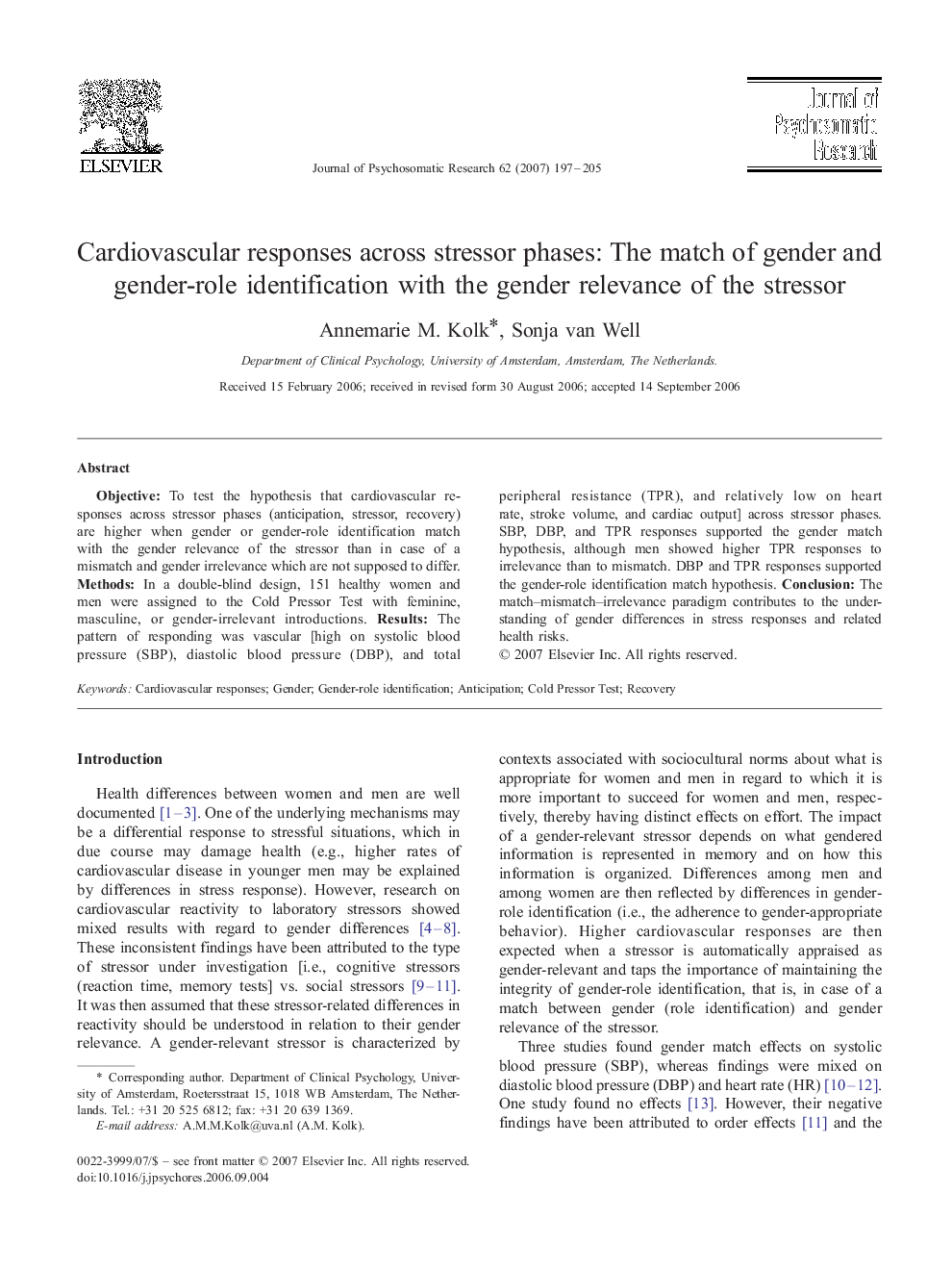| Article ID | Journal | Published Year | Pages | File Type |
|---|---|---|---|---|
| 950474 | Journal of Psychosomatic Research | 2007 | 9 Pages |
ObjectiveTo test the hypothesis that cardiovascular responses across stressor phases (anticipation, stressor, recovery) are higher when gender or gender-role identification match with the gender relevance of the stressor than in case of a mismatch and gender irrelevance which are not supposed to differ.MethodsIn a double-blind design, 151 healthy women and men were assigned to the Cold Pressor Test with feminine, masculine, or gender-irrelevant introductions.ResultsThe pattern of responding was vascular [high on systolic blood pressure (SBP), diastolic blood pressure (DBP), and total peripheral resistance (TPR), and relatively low on heart rate, stroke volume, and cardiac output] across stressor phases. SBP, DBP, and TPR responses supported the gender match hypothesis, although men showed higher TPR responses to irrelevance than to mismatch. DBP and TPR responses supported the gender-role identification match hypothesis.ConclusionThe match–mismatch–irrelevance paradigm contributes to the understanding of gender differences in stress responses and related health risks.
